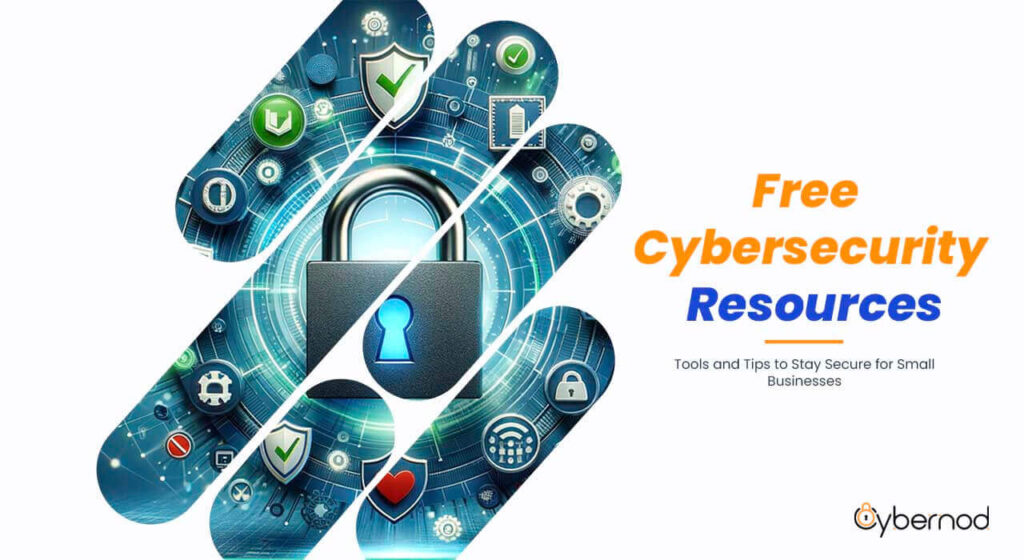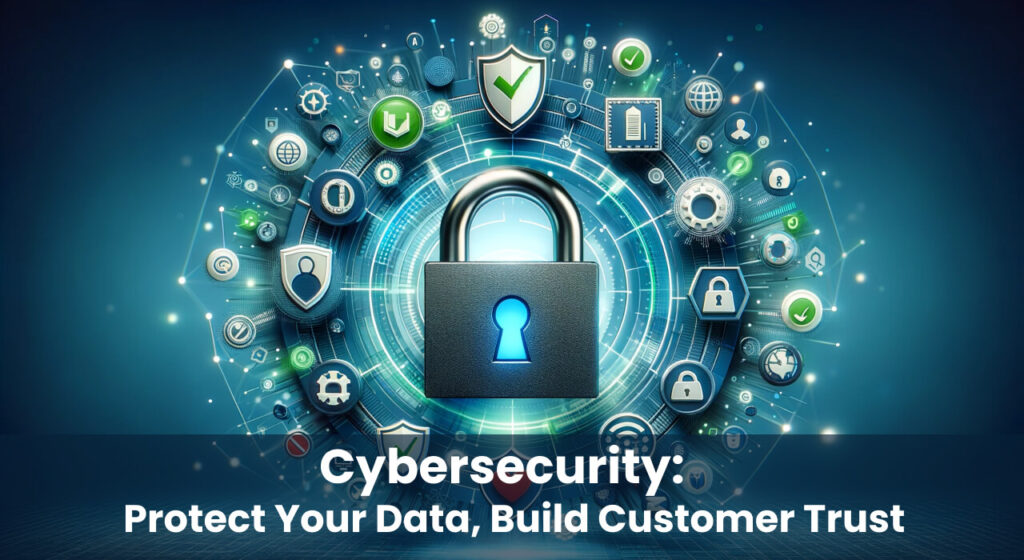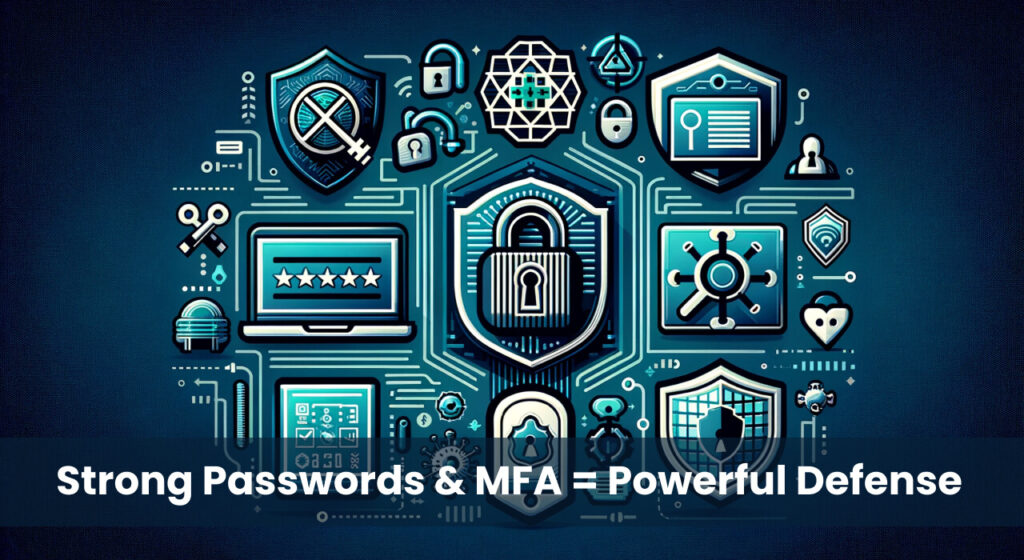
Navigating the Digital Minefield
In the ever-evolving digital landscape, cybersecurity is no longer an optional safeguard, but an essential lifeline for small businesses. According to a 2023 study by Ponemon Institute, the average cost of a data breach for businesses with fewer than 250 employees reached a staggering $4.24 million. This alarming statistic underscores the significant financial risks small businesses face in today’s perilous cybersecurity environment.
Cybercriminals are constantly refining their tactics, exploiting vulnerabilities in systems and human behavior to steal sensitive data, disrupt operations, and extort significant sums. From sophisticated phishing scams to ransomware attacks that cripple entire networks, the consequences of a cyberattack can be devastating for small businesses, potentially leading to financial ruin, reputational damage, and even legal repercussions.
However, navigating this digital minefield doesn’t require venturing alone. There are a wealth of free resources available to empower small businesses with the tools and knowledge necessary to build a robust defense against cyber threats. By leveraging these resources and adopting a proactive approach to cybersecurity, small businesses can significantly improve their resilience in the face of evolving digital threats.
Understanding the Cybersecurity Landscape

Navigating the intricate world of cybersecurity requires a foundational understanding of key terms and the prevalent threats targeting small businesses.
- Phishing: Imagine a cunning angler casting a deceptive line. Similarly, phishing scams lure victims by disguising malicious emails, websites, or text messages as legitimate sources, tricking them into revealing sensitive information like login credentials or financial data.
- Malware: This umbrella term encompasses malicious software designed to infiltrate, disrupt, or damage a computer system. Malware can take various forms, including viruses, worms, and Trojan horses, each with its own nefarious purpose.
- Ransomware: Imagine a digital kidnapper holding your data hostage. Ransomware encrypts critical information, rendering it inaccessible until a ransom payment is made. This extortion tactic can cripple small businesses that rely heavily on their digital assets.
Beyond these individual threats, small businesses are frequently targeted by:
- Denial-of-service (DoS) attacks: These aim to overwhelm a website or network with an influx of traffic, rendering it inaccessible to legitimate users.
- Social engineering: This form of manipulation exploits human psychology to trick individuals into breaching security protocols or divulging confidential information.
Maintaining robust data security and customer privacy are paramount for small businesses. Data breaches can expose sensitive information like financial records, personal details, and intellectual property, leading to severe legal and financial consequences. Building trust with customers hinges on safeguarding their privacy and fostering a secure digital environment for conducting business.
To delve deeper into the three most prevalent cybersecurity threats faced by small businesses, and explore specific methods to combat them, read our comprehensive follow-up article: “3 Common Cybersecurity Threats Small Businesses Face and How to Combat Them“
Free Resources for Crafting a Cybersecurity Strategy

A well-defined cybersecurity strategy acts as the cornerstone of any effective defense against cyber threats. This comprehensive plan outlines your organization’s specific goals, identifies potential vulnerabilities, and establishes a roadmap for implementing security measures.
Fortunately, numerous free resources empower small businesses to build and maintain robust cybersecurity strategies.
- The Federal Communications Commission (FCC) offers a free Cybersecurity Planning Tool (https://www.fcc.gov/cyberplanner) that guides you through the process of creating a personalized plan tailored to your business’s
specific needs and industry. - The National Institute of Standards and Technology (NIST) Small Business Cybersecurity Corner (https://www.nist.gov/itl/smallbusinesscyber) serves as a valuable repository of information specifically designed for small businesses. This comprehensive resource hub provides an overview of core cybersecurity principles, best practices, and practical guidance on implementing effective security measures.
Beyond these general resources, various organizations offer industry-specific guidance and tools. For instance, the Healthcare Information Sharing and Analysis Center (H-ISAC) provides cybersecurity resources targeted towards healthcare organizations, while the Financial Services Information Sharing and Analysis Center (FS-ISAC) offers specialized resources for the financial services industry.
By leveraging these readily available resources, small businesses can gain the knowledge and tools necessary to develop and implement a comprehensive cybersecurity strategy, significantly bolstering their defense against evolving cyber threats.
Free Tools for Continuous Protection

The frontline of cybersecurity defense revolves around implementing essential measures that become ingrained in everyday practices.
Strong passwords and multi-factor authentication (MFA) act as the first line of defense against unauthorized access. Complex, unique passwords for each online account, combined with MFA verification via a secondary device, significantly deter unauthorized login attempts. Numerous free resources, including websites like the National Cyber Security Alliance’s “Stay Safe Online” campaign (https://www.titanfile.com/blog/cyber-security-tips-best-practices/), provide comprehensive guides on creating strong passwords and implementing MFA.
Free anti-virus and anti-malware software options offer a critical layer of protection. These tools continuously scan your systems for malicious code, preventing malware infections and safeguarding sensitive data. Popular options like Avast and Bitdefender offer free versions with robust features suitable for small businesses.
For additional protection, consider free web filtering tools and browser extensions. These tools can block access to malicious websites known to harbor phishing attempts or malware, further mitigating the risk of encountering online threats.
By incorporating these readily accessible tools into your daily routine, small businesses can significantly bolster their defenses and foster a more secure digital environment.
Empowering Your Workforce: Free Training

While technical tools are essential, human vigilance remains a crucial component of robust cybersecurity. Employees often serve as the first line of defense, and their awareness of cyber threats significantly impacts an organization’s overall cybersecurity posture.
Fortunately, a multitude of free resources facilitate effective employee training and awareness initiatives.
- Platforms like Wizer offer free security awareness training videos ([https://www.wizer-training.com/]) that address common cyber threats, phishing scams, and best practices for secure online behavior. These engaging and informative resources equip employees with the knowledge and skills necessary to make informed decisions and identify potential cyber risks in their daily work activities.
- The Department of Homeland Security’s Stop. Think. Connect.™ campaign ([https://www.dhs.gov/xlibrary/assets/stop-think-connect-campaign-fact-sheet.pdf]) provides valuable educational materials and resources designed to empower individuals to become more vigilant online. This campaign emphasizes critical thinking before engaging with suspicious emails, links, or attachments, fostering a culture of cybersecurity awareness within your organization.
Furthermore, conducting regular phishing simulations can serve as a valuable training tool. These simulations mimic real-world phishing attempts, allowing employees to test their knowledge and identify red flags associated with malicious emails. This proactive approach helps identify vulnerabilities in employee knowledge and refine training strategies to continuously enhance cybersecurity awareness.
By empowering your workforce with the necessary knowledge and fostering a culture of vigilance, small businesses can significantly strengthen their defenses against cyber threats.
Vigilance is Key
The ever-evolving landscape of cybersecurity mandates a proactive approach from small businesses. While the freely available resources outlined in this article provide a valuable starting point, remember: cybersecurity is an ongoing process, not a one-time fix. Remain vigilant, continuously assess your vulnerabilities, and adapt your strategies as needed. Explore the comprehensive resources offered by the Cybersecurity & Infrastructure Security Agency (CISA) ([https://www.cisa.gov/]) for further guidance and stay informed on emerging threats and best practices. By prioritizing cybersecurity and leveraging available resources, small businesses can navigate the digital landscape with confidence and mitigate the risks associated with cyber threats.
Categorized in:
Comments